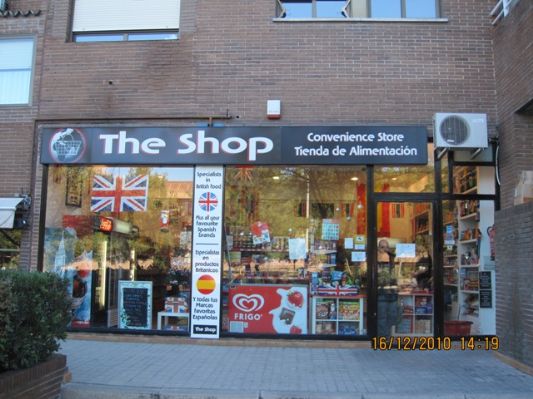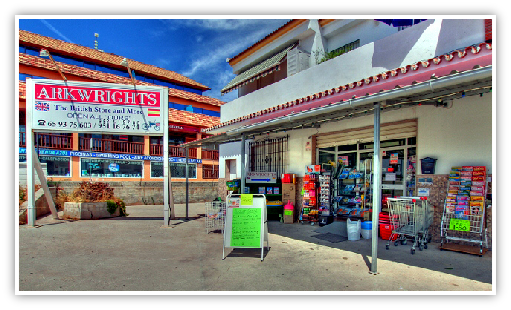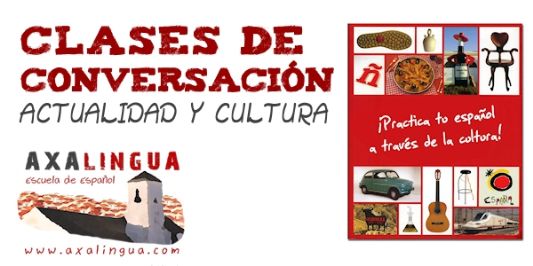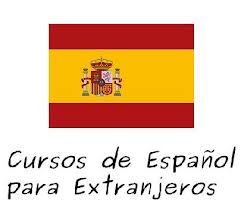33 - The Next Big Thing
Sunday, November 25, 2012
The Next Big Thing is a huge round-robin blog-hop of writers, authors, bloggers and journalists who share what they are embarking on next. The format is a set of questions, which can be varied depending on whether the current baton-holder is an author of books, or an online blogger.
Rachel Webb, who blogs as “Andalucía Explorer”, passed the baton on to me, and I was very honoured to accept it (especially once I’d put The Next Big Thing Bloghop into my search engine and found all the amazing writers who have taken part!).
The rest of the blog post can be found at: http://tamaraessexspanishblog.wordpress.com/2012/11/25/33-the-next-big-thing-blog-hop/
 0
Like
Published at 7:19 PM Comments (1)
0
Like
Published at 7:19 PM Comments (1)
32 - Chaos and Heroism
Friday, November 23, 2012
8am on the dot. No need for an alarm clock. The digger starts up, the sound echoes loudly, bouncing off the walls in the narrow street. They’re very punctual, the workmen. Damnit.
.JPG)
This really shouldn’t be the view outside anybody’s window. My morning walk around the edge of the village and to the bakery would involve a hard hat and a yellow jacket if I were in England. Here I just wave from my front door, the guys tell me if it’s safe, I climb over the wooden board guarding my front door, jump down to the muddy track way below, and pick my way over trenches and mudheaps.
.JPG) This morning I put my empty gas bottle out for replacing. Optimistic? I needn’t have worried. A knock on the door – the gasman cometh. I thanked him profusely and said I had thought he wouldn’t be able to get through. He looked surprised, and said simply “People need gas”. He would have scaled mountains and carried the bombona across a bed of nails to reach his customers. So often it’s the people doing their daily work and keeping us going who are the real heroes. This morning I put my empty gas bottle out for replacing. Optimistic? I needn’t have worried. A knock on the door – the gasman cometh. I thanked him profusely and said I had thought he wouldn’t be able to get through. He looked surprised, and said simply “People need gas”. He would have scaled mountains and carried the bombona across a bed of nails to reach his customers. So often it’s the people doing their daily work and keeping us going who are the real heroes.
© Tamara Essex 2012
 0
Like
Published at 12:47 PM Comments (4)
0
Like
Published at 12:47 PM Comments (4)
31 - Resurfacing the Street
Wednesday, November 21, 2012
.JPG) They started resurfacing my street this week. It does rather need it. It was in pretty rubbish condition when l viewed my house back in May, and then for the next five months my neighbour was rebuilding the house next door, parking massive delivery lorries on the precarious slope, and dropping heavy tools and breeze-blocks on the ground. They started resurfacing my street this week. It does rather need it. It was in pretty rubbish condition when l viewed my house back in May, and then for the next five months my neighbour was rebuilding the house next door, parking massive delivery lorries on the precarious slope, and dropping heavy tools and breeze-blocks on the ground.
So on Friday they came and re-routed the water. Not quite sure why, but l guess it's a safety measure to avoid damage to underground water pipes during the resurfacing. As a temporary measure the water pipes swing overhead across the street. The water pressure was down a bit at first, but seems OK now.
Still not sure what the new surface will be. The parallel street which was done within the past year or two has rather nice black paviors. Those would be nice but would they last? Our street is much steeper and more awkward.
.JPG) In a rather impressive bit of detective work, the Guardia Civil popped into Bar CO2 on the square to track me down to ask me to move my car to give wider access round the fenced-off water supply left uncovered by the engineers. The car is registered at the ayuntamiento (town hall) so they knew where l live and that l'm an extranjero (foreigner), so they assumed (correctly) that l visit CO2. Fortunately John was able to tell them l had already moved the car further up the street. In a rather impressive bit of detective work, the Guardia Civil popped into Bar CO2 on the square to track me down to ask me to move my car to give wider access round the fenced-off water supply left uncovered by the engineers. The car is registered at the ayuntamiento (town hall) so they knew where l live and that l'm an extranjero (foreigner), so they assumed (correctly) that l visit CO2. Fortunately John was able to tell them l had already moved the car further up the street.
Then on Monday, Juan (the older police officer) stopped me in the square to tell me that the resurfacing would begin that afternoon and that I should take care. I thanked him, but wondered why he was so concerned. After all, resurfacing just means laying a few pretty cobbles or paviors, doesn’t it? Shaftesbury High Street has been re-surfaced so many times in the last few years (all in the name of “enhancement”) that I really couldn’t see what the fuss was about.
.JPG)
And then came the diggers.
.JPG)
Ah.
Not just “re-surfacing” then.
Within two hours the diggers had completely and utterly demolished my street.
© Tamara Essex 2012
 0
Like
Published at 5:50 PM Comments (5)
0
Like
Published at 5:50 PM Comments (5)
30 - Bubble-Wrap and Pointless Possessions
Thursday, November 15, 2012
A motorbike, two heads of antlers, a billiard table and a bonsai tree. Somebody's idea of the 5 most important things to take to Spain. I suppose it must make sense to them. Conveniently, the person who had booked three quarters of Graham's transit van for their antlers and other valuables, had left room at the back for my stuff.
Mum's bureau was the main thing. Sturdy and made of burnished rosewood with rows of compartments and some secret drawers that had captivated me as a child, it is a piece of furniture which I've known all my life. One drawer still full of unsorted papers, including an envelope of all the letters l ever wrote her. A shock to find as l had gone through the desk, throwing away the collected paraphernalia of a life - diaries, old cheque books, receipts and instruction booklets for items long discarded. The bureau produced a binbag of detritus, nothing worth keeping, the ordered clutter of one's day-to-day existence. And the letters. A regular correspondence from 1978 to the early 90s, from my time in rented flats in Lancaster and Leeds as a young Assistant Stage Manager, then in touring theatre. Postcards tucked in with some of the letters, tracking the progress of the tours around the "number two circuit", large towns and small cities, 600-seat playhouses and arts centres. Letters full of irrelevancies, odd funny stories about my theatrical digs or a late-night adventure in some faceless provincial town. Nothing of import, yet each one smoothed flat and stored. I hadn't known, nor expected that. Still unsure how to react, how to feel.
So the bureau gets draped in bubble-wrap and a blanket, and loaded onto the back of the van. Four cardboard boxes of books, walking boots, photos, CDs, bedding. Hard to remember, though packed only a week ago. There's a bonus space on the van for the bookshelf from the hallway of mum's bungalow. Not a large one, but without it her empty home looks suddenly emptier.
The final small space on the van is reserved for the pig. Forty-seven years old, he's scratched and his skin sits loosely on whatever his insides are made of. I was seven when we moved to Yorkshire, and Dad announced that if we were to live in Yorkshire he wanted to keep a pig. Horrified, mum bought him a life-size black leather pig, a footstool l think (though never a comfortable one) and informed him it was the only pig he was having. In all her moves since his death in 1975, the pig and the bureau are the only things that made the move with her every time. Now both are on Graham's van, heading for the ferry to Santander.
The motorbike, two heads of antlers, the billiard table and the bonsai tree may have back-stories too. To me, somebody else's choices of what to surround themselves with in Spain seem odd. My choices would seem just as odd to others. After slamming the doors on the van and waving Graham off in the November dark and drizzle, l turned on the computer to find a Facebook thread started by a friend in Spain: "What is the most useless thing you brought with you when you moved to Spain?" Electric strimmers and metal detectors came up a few times. A husband was listed once! Nobody mentioned antlers. Nobody mentioned a battered old leather pig. Nobody mentioned an envelope of thirty-year-old letters.
© Tamara Essex 2012
 0
Like
Published at 4:22 PM Comments (9)
0
Like
Published at 4:22 PM Comments (9)
29 - Expats or Immigrants?
Wednesday, November 7, 2012
Expat: Expatriate. A person who lives outside their native country (Oxford Dictionaries, online). Short for expatriate, which comes from the Latin ex patria, meaning out of the homeland.
Immigrant: A person who comes to live permanently in a foreign country (Oxford Dictionaries, online).
I can’t see a difference in the definitions, at all. And yet the words appear to be used very differently. In Spain I have once heard a Dutch woman describe herself as an immigrant, but with that single exception I have only heard European immigrants to Spain describe themselves as expats.
Yet those same people, often British, DO use the word “immigrant”, and often derogatively, about people from other countries who have moved to Britain.  Indeed I have frequently heard long rants about “immigrants moving in, living together in clusters, opening their own shops and businesses to cater for each other, and not learning to speak the language”. Those complaints could very easily be from Spanish people, bemoaning the anglicisation of stretches of the coast, but they aren’t. They’re from British people criticising groups of expats from other countries, settling in Britain. Yet have those British immigrants to Spain not done exactly the same? Often in even greater density on their golf resorts and urbanisations, and with even less willingness to learn the language? Indeed I have frequently heard long rants about “immigrants moving in, living together in clusters, opening their own shops and businesses to cater for each other, and not learning to speak the language”. Those complaints could very easily be from Spanish people, bemoaning the anglicisation of stretches of the coast, but they aren’t. They’re from British people criticising groups of expats from other countries, settling in Britain. Yet have those British immigrants to Spain not done exactly the same? Often in even greater density on their golf resorts and urbanisations, and with even less willingness to learn the language?
 More than three million Brits live abroad, more than from any other European country. The country that takes the most British immigrants is, not surprisingly, Spain. The Office for National Statistics reports that in 2010, 350,000 Brits emigrated, while 216,000 people emigrated from other countries to Britain. More than three million Brits live abroad, more than from any other European country. The country that takes the most British immigrants is, not surprisingly, Spain. The Office for National Statistics reports that in 2010, 350,000 Brits emigrated, while 216,000 people emigrated from other countries to Britain.
At some point it appears that the word “immigrant”, which means nothing more than a change from original location, has come to have negative connotations amongst some people. At that point, those who perceive the word as negative, needed to use a different word to describe themselves.
Surely the two words are interchangeable? Expat or immigrant?  I remember the library in a town in Córdoba province offering “English Classes for Immigrants”. Many British immigrants didn’t attend, as they understood the word to mean that the classes were targeted only at African seasonal workers (who made up the bulk of attendees – until the olive harvest began!). So to turn that around, I wonder whether those African workers would feel welcome at a lunch event or a coach trip publicised as being for expats? Yet both words clearly include everyone living outside their original homeland. I remember the library in a town in Córdoba province offering “English Classes for Immigrants”. Many British immigrants didn’t attend, as they understood the word to mean that the classes were targeted only at African seasonal workers (who made up the bulk of attendees – until the olive harvest began!). So to turn that around, I wonder whether those African workers would feel welcome at a lunch event or a coach trip publicised as being for expats? Yet both words clearly include everyone living outside their original homeland.
 Perhaps we should leave the last word to our hosts, the Spanish? To them we are all “extranjeros” – foreigners. As far as I can understand, there is no differentiation by the Spanish between foreigners from different parts of the world or from different racial backgrounds. Then of course there is the slightly derogatory “guiris” – but the Spanish apply that equally to foreigners, Spanish city-dwellers spending weekends in the countryside, people from a town the other side of a river, or even the fans of a visiting football team! Perhaps we should leave the last word to our hosts, the Spanish? To them we are all “extranjeros” – foreigners. As far as I can understand, there is no differentiation by the Spanish between foreigners from different parts of the world or from different racial backgrounds. Then of course there is the slightly derogatory “guiris” – but the Spanish apply that equally to foreigners, Spanish city-dwellers spending weekends in the countryside, people from a town the other side of a river, or even the fans of a visiting football team!
© Tamara Essex 2012
 0
Like
Published at 12:50 AM Comments (12)
0
Like
Published at 12:50 AM Comments (12)
Spam post or Abuse? Please let us know
|
|